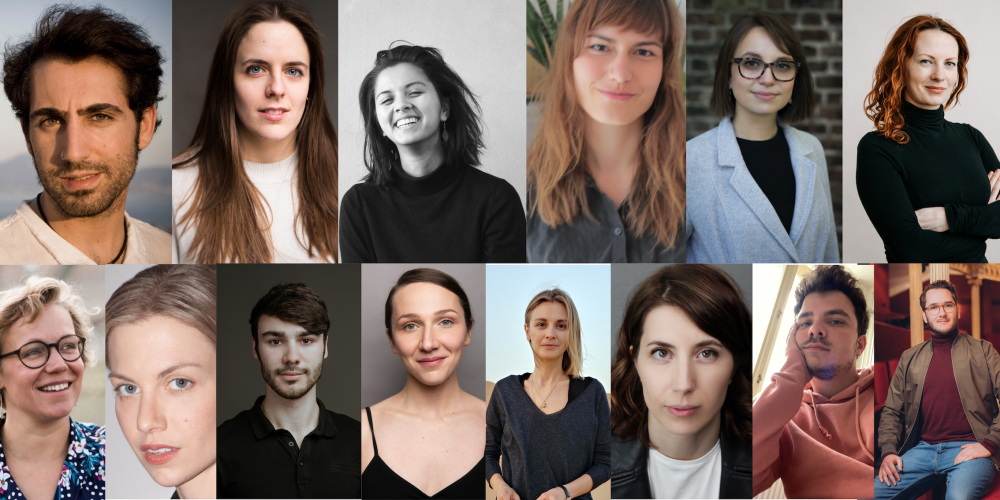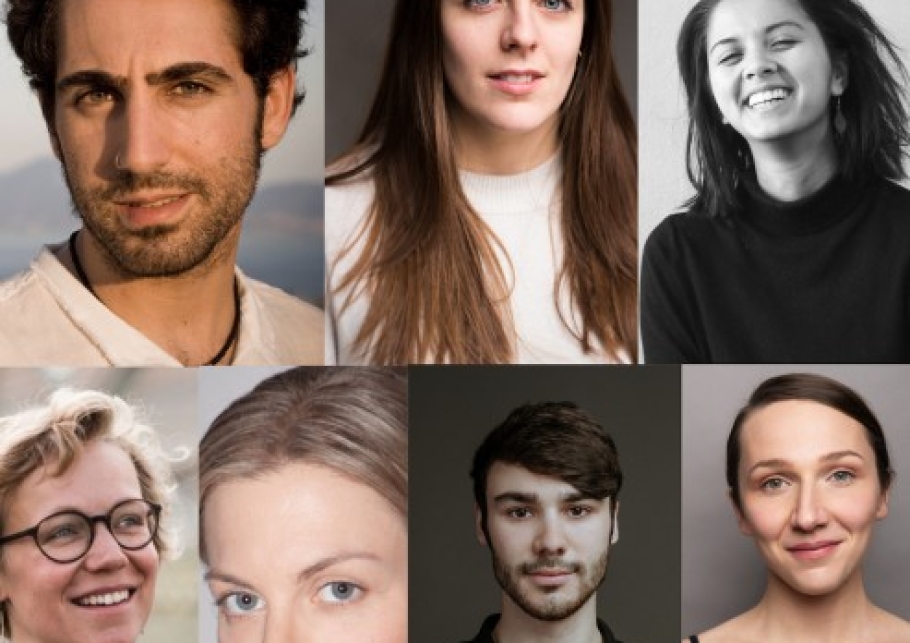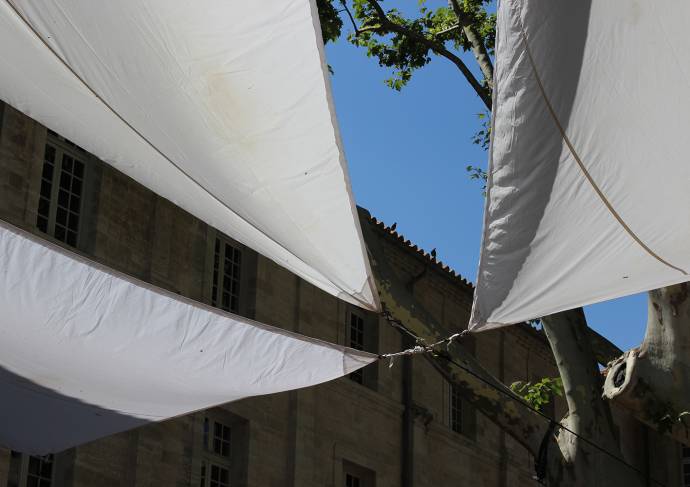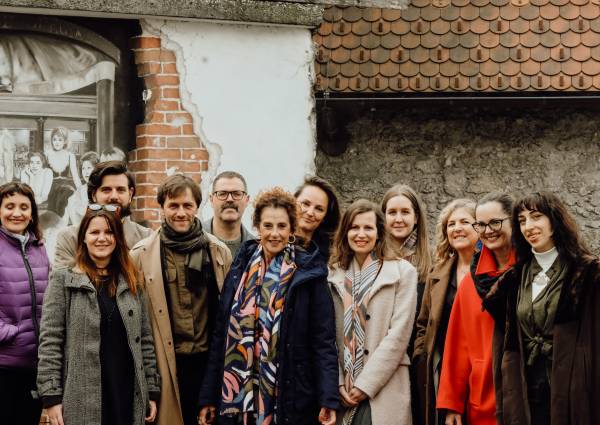ETC's European Theatre Academy is a four-day seminar of masterclasses and workshops offering broad and in-depth knowledge on the development and management of international theatre collaborations.
It is designed for theatre professionals at the beginning of their careers, with the ambition to grow internationally.
Our European Theatre Academy took place at Festival D'Avignon in July 2021. Meet some of the participants below!
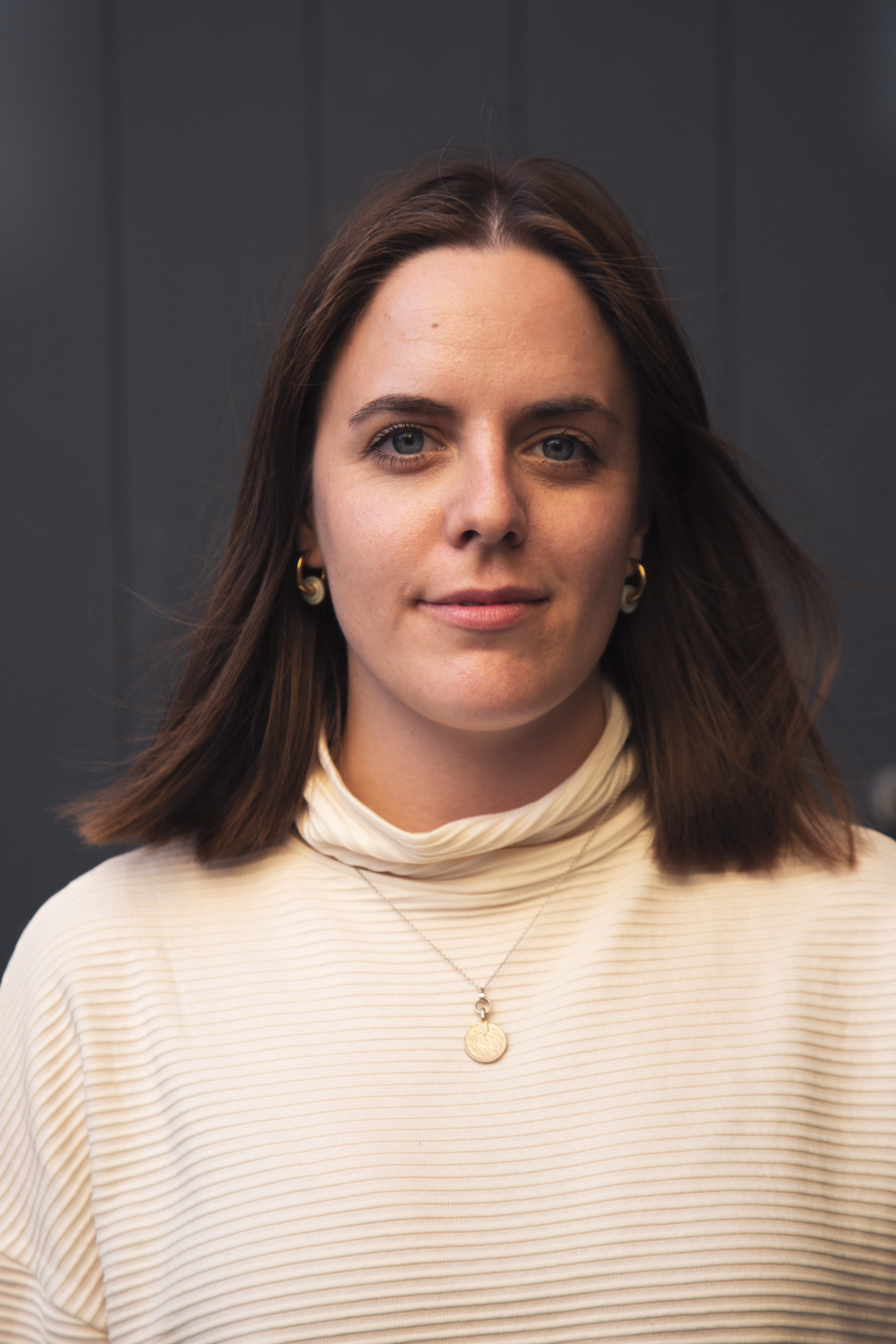
Camilla Gürtler
Artistic Director and Producer, Cut the Cord Theatre.
Llanfyrnach/United Kingdom
Camilla Gürtler is a Danish director & producer who trained at Drama Centre London. She is the founder of Cut the Cord Theatre in London which focuses on international collaborations and skills- exchange. She is the creator of New Nordics Festival, and also works as an arts fundraiser.
- Firstly, how are you?
Busy and excited! A lot has happened since the Academy. I produced New Nordics Festival in London with Cut the Cord Theatre after being on hold for 18 months because of the pandemic. We presented 6 productions and readings from 6 different countries and hosted a programme of talks and workshops around international collaborations and Nordic theatre. 3 years of work has just come to an end, so it’s been quite a journey the last few months.
I’m now starting a new job as a producer for The Development Platform for Performing Arts in Denmark, and I’ll be focusing on international exchanges and sustainability projects, so I’m very excited about this new chapter!
- Tell us a bit about your work?
I’m a theatre producer and director, and for the last few years I’ve been the founder and artistic director of Cut the Cord Theatre in London which focuses on international collaborations and skills-exchange. I’ve worked a lot with Nordic embassies, organisations and artists, so my focus has been mainly on UK-Nordic collaborations, particularly enabling emerging artists to exchange networks and ideas internationally. I’ve directed plays as well and trained as a director at Drama Centre London, but my main focus lately has been on producing both festivals, artist development programmes and events around international collaborations and sustainability in the arts sector.
- How would you describe ETC's European Theatre Academy in three words?
Community, inspiring, reviving.
- Is there a particular highlight that stands out for you?
The whole Academy was a highlight, coming from numerous lockdowns and online-only collaborations. It was so refreshing to meet other creatives face-to-face, and the whole experience felt very open and encouraging. Meeting so many peers from all over Europe both gave me lots of new ideas and strengthened my sense of artistic community. It made me realise what opportunities for connection is out there, and that there are so many incredible artists making work at the moment that I need to know more about!
- What advice would you give any emerging artist looking to expand their work internationally?
Be curious. There is so much happening internationally, and of course it can feel overwhelming not knowing where to look, but look for the networks. Sign up to their newsletters, join their panel discussions, apply for exchanges like this Academy. You get so much out of meeting people from different countries, in a different context, and exchange ideas. And ask people who you know work internationally how they got started. They can connect you, give you advice, and help you expand your international work.
- Finally - how does the future look for you and your work?
After completing New Nordics Festival this October, I now start working with The Development Platform for Performing Arts, meaning I will also work more with European and global networks and focus on supporting performing artists in Denmark. I’m hoping I will grow my knowledge of international networks and artists in the next year and work with organisations around Europe and globally. I feel this next chapter is about growing my own skills, as well as supporting artists in making the most of the international networks available to them.
I also hope the work I’ve done with my company over the last few years and with our festival will have inspired other artists and companies in the UK to collaborate more internationally, and that we’ll start seeing more Nordic (and global) plays on UK stages in the years to come.
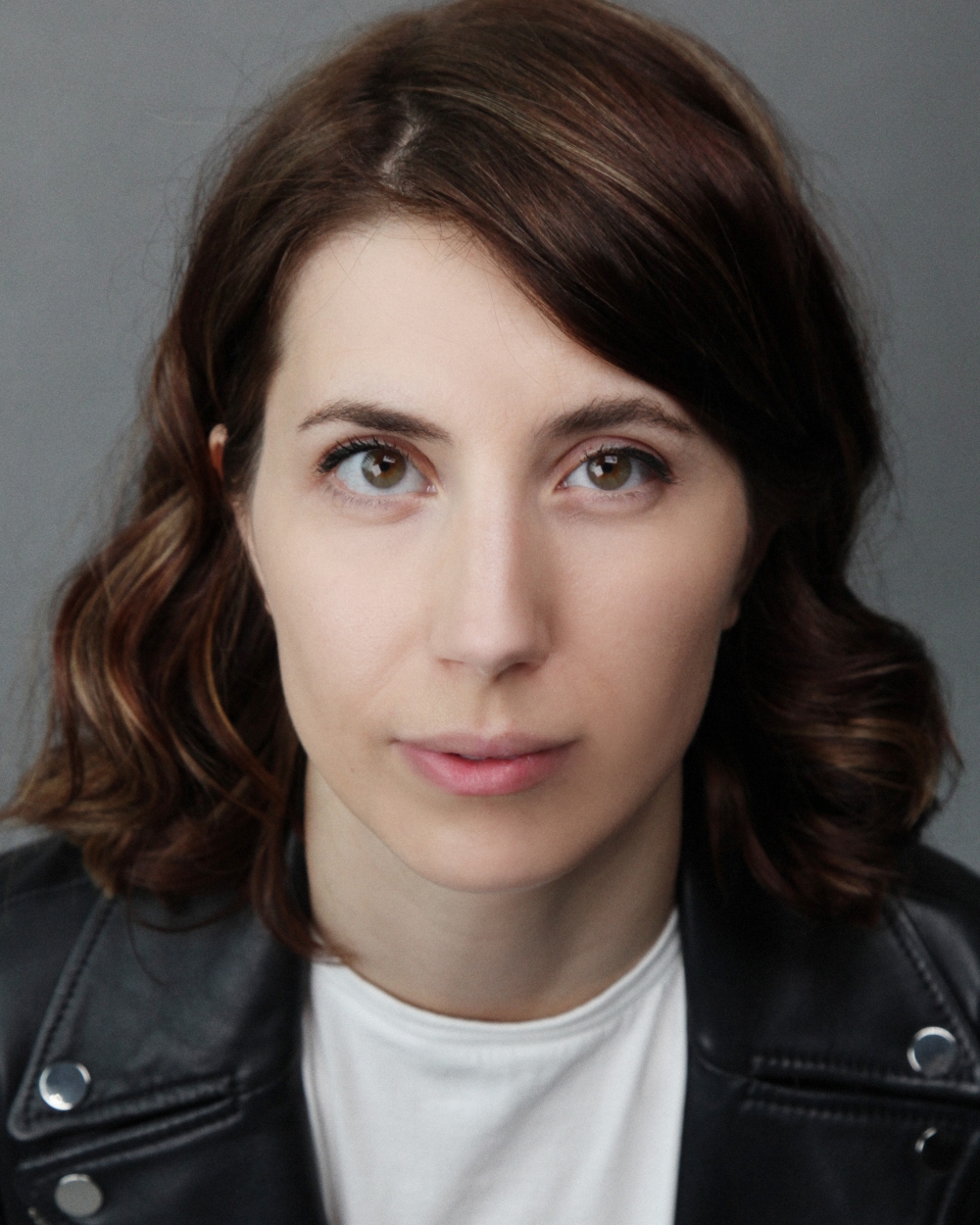
Vlada Lemeshevska
Producer, Xameleon Theatre
London (United Kingdom)
Vlada Lemeshevska is a UK-based theatre producer originally from Riga, Latvia. Founder and artistic director of Xameleon Theatre - multi-cultural London based theatre company, focusing on working with migrant theatre practitioners and audiences from Eastern Europe, Russia and Central Asia.
Vlada holds a Master of Fine Arts from East 15 Theatre School. She also holds a BA in PR and Media from Queen Margaret University, Edinburgh. She participated in residencies at Shakespeare’s Globe and GITIS, Moscow.
- Firstly, how are you?
I'm very well, thank you!
- Tell us a bit about your work?
I am a theatre maker and artistic director of Xameleon Theatre, London based multi-cultural theatre company.
- How would you describe being part of the European Theatre Academy in three words?
Inspiring, friendly, connected
- Is there a particular highlight that stands out for you?
Yes, speed-networking session with fellow participants & our legal seminar.
- What advice would you give any emerging artist looking to expand their work internationally?
Meet as many international theatre-makers as you can, stay connected to them and do not be afraid to ask for their advice/help.
- Finally - how does the future look for you and your work?
It looks quite promising at the moment as in October we start R&D rehearsals for Anti-Gone, a newly commissioned play by Russian playwright Evgeniya Palekhova, based on the plays by Sophocles and Jean Anouilh.
In this contemporary take on Antigone’s story, directed by award-winning Central Asian director Ovlyakuli Khodzhakuli, Xameleon Theatre is exploring the subjects of tyranny, the abuse of power and living under dictatorship regimes, so closely experienced by some of the key artists working on this project. The project is supported by Arts Council England, Goethe Institute, Counterpoints Arts and NDT Broadgate.
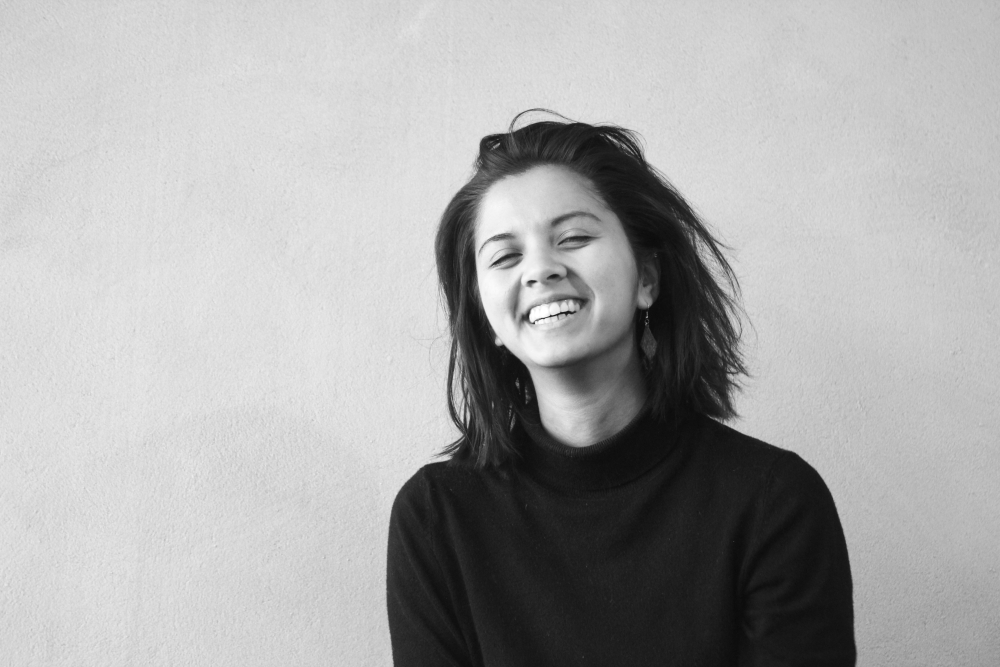
Esmée Begemann
Theatre Director, The Okapi Company
Den Haag (Netherlands)
Esmée Begemann is a Dutch theatre director and performer. She holds a degree in BA Theatre Directing from the RITCS in Brussels and in Social Entrepreneurship from YIP in Sweden.
She comes from colonial descent and has been actively engaging with the debate of diversity and decolonisation in the Netherlands. Next season she will create 'Remains of Violence' a performance inspired by the documentary the 'Act of Killing' (2012, Joshua Oppenheimer), with the support of the Jakop Ahlbom Company.
- Firstly, how are you?
A bit tired but good. I am sitting in a lovely bookstore in The Hague, Netherlands writing these answers.
- Tell us a bit about your work?
I am a theatre director based in The Netherlands working and engaging within the debate of decolonisation, diversity and inclusivity.
- How would you describe being part of the European Theatre Academy in three words?
Whirlwind, warmth , exploration
- Is there a particular highlight that stands out for you?
Being able to attend different performances at the festival and reflect on them with our cohort and mentors. These performances served a lot of times as openings to wonderful deepening conversations about the craft and necessity of theatre and certain themes.
- What advice would you give any emerging artist looking to expand their work internationally?
Just say yes to things and show up? And don’t shy away from asking for help.
That is what I am attempting to do at least.. Ask me again in a couple of years and I will tell you if it worked out or not!
- Finally - how does the future look for you and your work?
Quite exciting projects on the schedule actually. I feel very blessed.
I have received a research fund from the Jakop Ahlbom Company in The Netherlands. Here I will be working on the creation of a new piece Remains of Violence together with a dear colleague and friend of mine (Ruth Borg). We will work around the question how the aftermath of big acts of violence is processed within the individual.
Furthermore I am working with a group to set up a second edition of Theater voor Keti Koti ; a national and annual theatre event that creates a space for theatre projects around the colonial and slave history of The Netherlands.
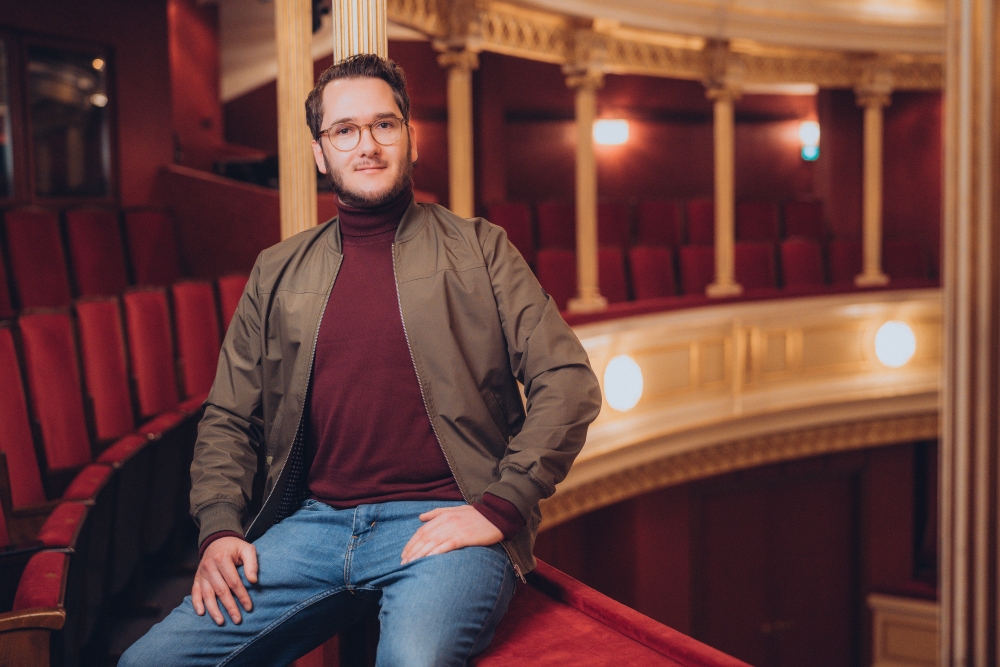
Daniel Grünauer
Dramaturg and Director
Schauspielhaus Graz (Austria)
Daniel Grünauer is a German director, author and dramaturge.
He studied theatre, literature, political science and performing arts at the universities in Munich, Würzburg and Caen. He co-founded Landestheater Oberpfalz (LTO) and worked at theatres in Ulm and Konstanz. He coordinated the SwissTheatreFestival, is member of the leading team at the RathausOper Konstanz and co-founder of the dramaturgy network.
He published two books and taught at the Academy for Performing Arts in Ulm. He was an advisory board member of the LTO and is member of the International Heiner Müller Society.
- Firstly, how are you?
I'm doing really well after a summer with a lot of theatre.
- Tell us a bit about your work?
After attending the ETC European Theatre Academy at the Festival D'Avignon, I staged a comic opera as an open-air theater at Lake Constance.
The season at the Schauspielhaus Graz is running again where I am currently a dramaturge on the play "The Phlebotomist" from Ella Road.
- How would you describe being part of the European Theatre Acamdey in three words
Intense, collegial, enriching
- Is there a particular highlight that stands out for you?
The joint conversations with theater people from all over Europe.
- What advice would you give any emerging artist looking to expand their work internationally?
Make personal contacts with other theatre people!
- Finally - how does the future look for you and your work?
Well... hard to say. I would say that I look to the future with confidence and curiosity.
Judit Szokol
Theatre Director, Stage Director
Budapest (Hungary)
Judit Szokol graduated at the University of Theater and Film Arts Budapest (SZFE) in 2019 as a stage director.
She was working in several Hungarian theatres as a director and as an assistant director, focusing on our generation's problems and research while she concentrates on contemporary texts and writing.
She is also working as an assistant director and as a casting director in movie making.
- Firstly, how are you?
I am quite busy. In August I had the premier of Etudes of Silence, the play about solitude I was working on during the lockdown, and I made a staged reading mono-drama based on Henrik Ibsen's Nora. The texts of these were written by me and two dramaturges, and both of them were very long processes. Then at the end of the month I spent two weeks shooting a movie in the countryside, which was very intense. So now I try to rest a bit and prepare for my next work.
- Tell us a bit about your work?
Recently I was working in several movies in different positions (production assistant and casting director), which was very exciting.
In theatre I started to work not only as a director but as an author as well. This new perspective allows me to find my own topics and create a personal dramaturgy. I want to make theatre more intimate by using experiences out of our own, everyday lives.
- How would you describe European Theatre Academy in three words?
Friendly, inspiring, open-minded.
- Is there a particular highlight that stands out for you?
I was very happy to meet other young theater makers from all over Europe, and we had the chance to share and exchange our experiences. The time and the location was quite the perfect choice. I hope we will have an opportunity in the future to continue the discussions we've already started.
- What advice would you give any emerging artist looking to expand their work internationally?
Try to be updated on an international field, follow many foreigner company's work. Try to find possibilities to go on an exchange programme (workshops, internships). Signing up to newsletters are very useful!
- Finally - how does the future look for you and your work?
I try to work in theatre and in filmmaking as well. I have to resume some of my former shows for this season, and I will stage A Letter To Torvald Helmer, our mono-drama.
In the autumn I will also work in a feature film. I am also thinking about going somewhere abroad in the near future.
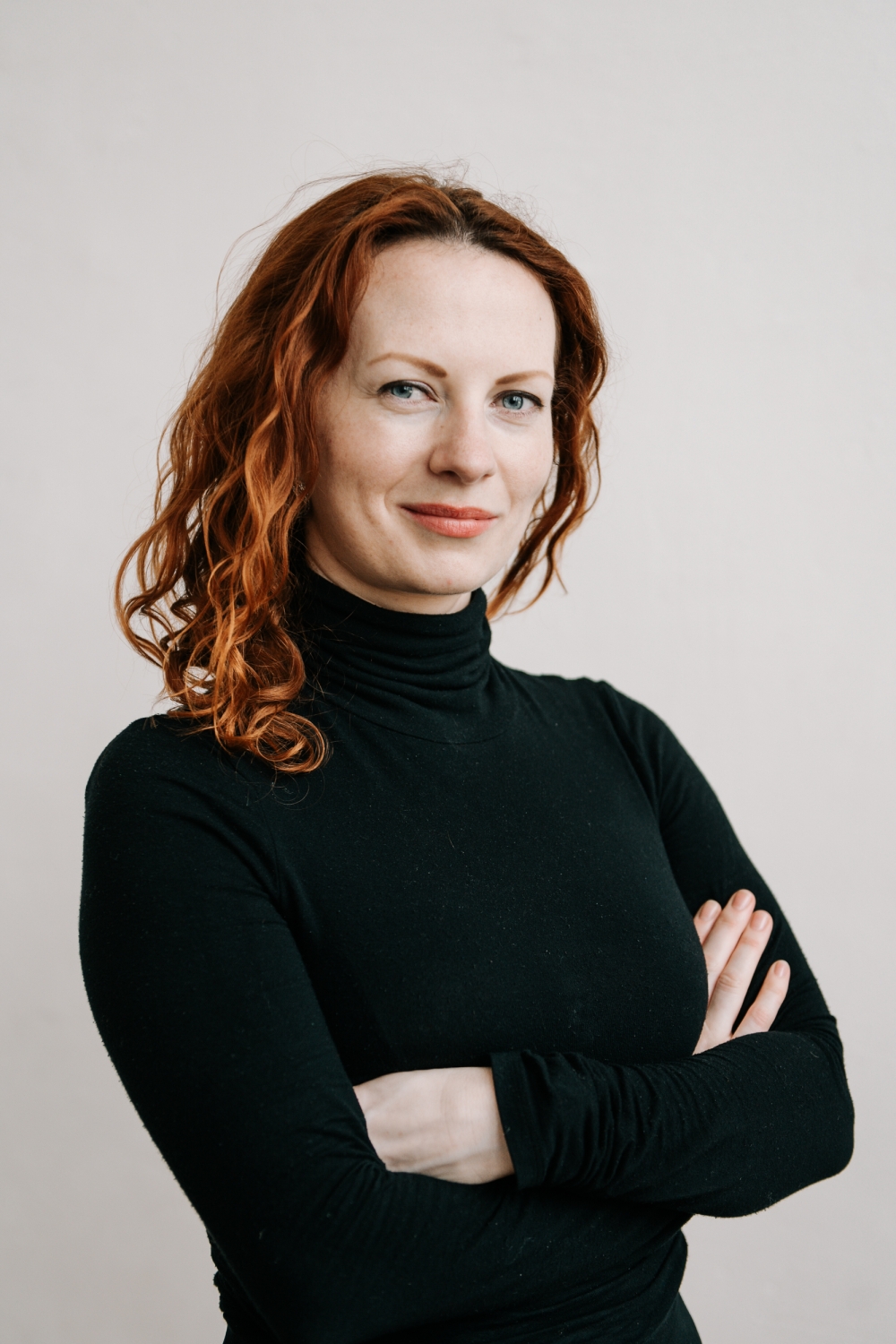
Ada Mukhína
Theatre director, performer, curator, researcher and visiting lecturer.
Berlin (Germany)
Ada Mukhína, born in 1988 in St. Petersburg, Russia, is a nomadic artist, theatre director, performer, researcher and visiting lecturer, currently based in Berlin.
After completing her law education, she studied at the St. Petersburg Theatre Academy, followed by MA in Advanced theatre practice at the Royal Central School of Speech and Drama in London.
Her politically engaged performances often invite various artists, communities, and audience on stage. Recently, she has been awarded Berlin Fellowship from the Akademie der Künste, where she conceived her newest project "How to Sell Yourself to the West?".
- Firstly, how are you?
I am excited! I am taking part in the festival "Radar Ost" on October, 7-10 at the Deutsches Theater Berlin. That will be the first real showcase of my work in Berlin. Yay!
- Tell us a bit about your work?
I am going to present two performances. "How To Sell Yourself to the West" is my brand new humourous lecture-performance about politics inside the art industry, told from my own perspective of a female theatre director from "evil Russia" who tries to make it in the West.
"Risk Lab" is a series of performances about risk in art and artists at risk. The third episode we created especially for the festival together with Belarus-born theatre-makers Anna Sagalchik and Tim Tkachev from the 12:12 activist art group.
- How would you describe European Theatre Academy in three words?
Funny, performative, and à la provencale.
- Is there a particular highlight that stands out for you?
Talks, talks, talks with other participants of the Academy: over coffee, during the walk, in the queue to the show, under the rain, during vintage shopping, and sometimes even without a word while dancing.
- What advice would you give any emerging artist looking to expand their work internationally?
Travel places and meet people there. Or stay at home and meet people who have traveled to the place where you are.
- Finally - how does the future look for you and your work?
The plan is to expand "How To Sell Yourself to the West" with the perspectives of artists from other corners of the world (Africa, Latin America, Middle East, etc.) because the challenges of the representation and identity politics on the "Western" art market are not limited to the East-West relationship.
The next step would be to show the expanded version of the performance at the Academy of Arts in Berlin, in which residency the project has originally started, in spring next year.
In the future, I would love to bring this project to different art institutions worldwide, each time doing local research and inviting migrant artists from this place to contribute to the performance.
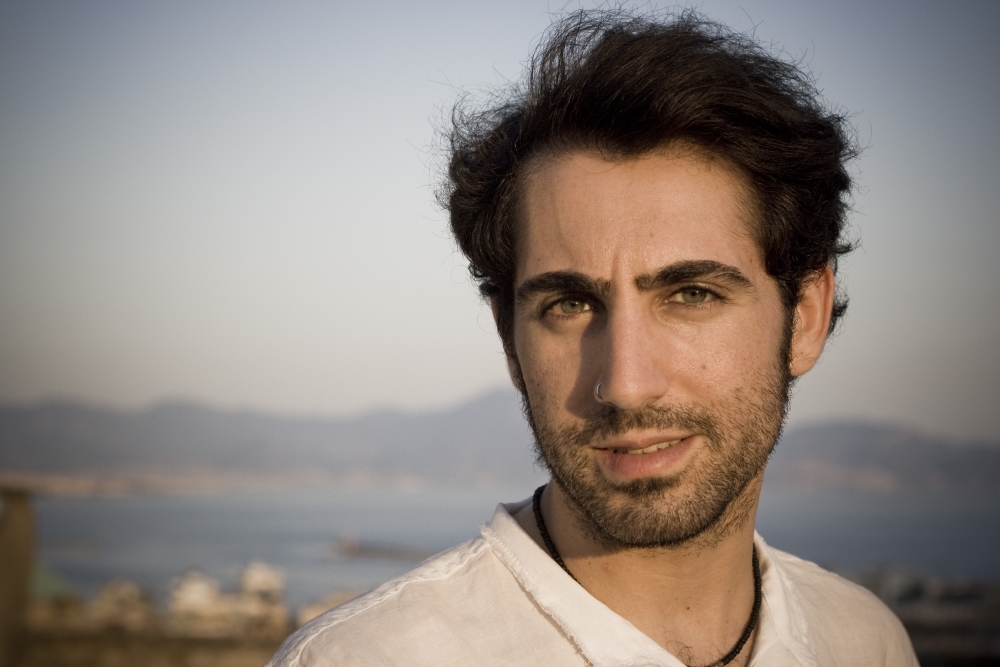
Eduardo Di Pietro
Director, Collettivo lunAzione
Napoli (Italy)
Eduardo Di Pietro trained as actor, director and playwright. He works continuously with Collettivo lunAzione, a company he founded in 2013 and with which he made pieces included in several festivals (Napoli Teatro Festival Italia, Festival Shakespeare 2016 in Buenos Aires and San Diego International Fringe Festival 2020 selections).
In 2019 he won the Premio Scenario Periferie. His creative work is based on the direct involvement of the actors and on field research.
- Firstly, how are you?
I'm very well, I survived a summer of practically uninterrupted work. I am happy, it is the first time that, thanks to the post-pandemic recovery, such an accumulation of commitments, travels and show dates has happened to me. I have set aside a good reserve of satisfaction and stress for the autumn.
- Tell us a bit about your work?
My work is related to the company Collettivo lunAzione, which I founded in 2013. My working method makes extensive use of creative dialogue with the actors and field research.
I find it strongly necessary that the theater, at least in its realization phase, mixes and contaminates with the reality in which it is rooted. Even if it then just as radically denies it.
I like to think that my work serves to wield the imagination like a torch, to pierce the darkness of everyday life and frighten the beasts of the real world for a few moments.
- How would you describe your experience at ETC's European Theatre Academy in three words?
Three words I hope not too strange: glowing, promise and kaleidoscope.
- Is there a particular highlight that stands out for you?
The meeting and sharing of the path between different views, perspectives and objectives, in the same context of performing arts.
The reflection and awareness generated by such an experience have been invaluable, so networking can allow, once again and more widely, to transform limits into opportunities.
- What advice would you give any emerging artist looking to expand their work internationally?
I would recommend trying to dialogue with existing supranational organizations such as the ETC, according to adequate proportions. I would also ask them, if they succeed in this expansion, to reciprocate in turn with some advice.
- Finally - how does the future look for you and your work?
How the future always appears: new. Stranger. Promising and mocking at the same time. I hope to find the right development for new projects, which acquire space and breath beyond national borders - an increasingly obsolete concept.
